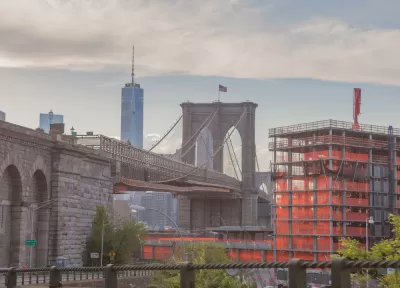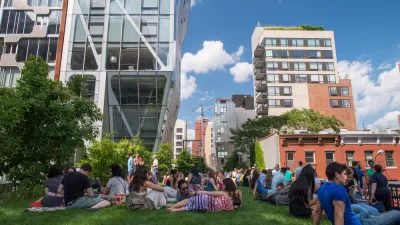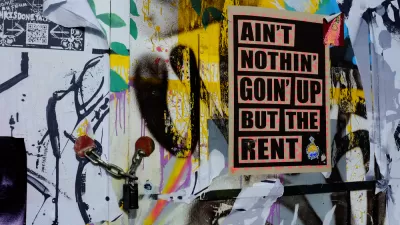Call it the re-education, the evolution, or the contrition of Richard Florida, but the "rock-star urbanist" has realized some unintended consequences of his creative class ethos, and he's ready to share a new vision for cities.

Lydia DePillis reports on the evolution of Richard Florida, who 16 years after his first book, The Rise of the Creative Class, will release a new book called The New Urban Crisis.
According to DePillis, the theories included in The Rise of the Creative Class "proved half true." That is, "[f]or many small, post-industrial cities without assets like big tech companies and universities, no amount of creative-class marketing would turn things around."
Meanwhile, "some cities — San Francisco and New York, Austin and Seattle and Washington — have seen the theory work entirely too well, as creative and techy types revitalized downtown neighborhoods to the point where only bankers and software developers can afford to live in them comfortably."
DePillis attended a recent event in Houston hosted by the Kinder Institute and the Greater Houston Community Foundation, where Florida admitted that his original work did not anticipate the "dark side of the urban creative revolution."
The new book won't be out until next spring, but Florida spoke with DePillis in detail about its genesis (an argument with Joel Kotkin) and some of the realizations that shaped its argument (e.g., the segregation and sorting of growing cities). The new book, explains DePillis, is about "inclusive urbanism": "investing in residents' skills rather than yuppifying their neighborhoods, about retrofitting suburbs for people who might want to be able to walk to a grocery store and piping them into the city with commuter rail."
One pointed moment comes when Florida responds to the politics of the "tribe of urban libertarians," which is probably a code for YIMBYs. Here's Florida in his own words on that subject:
What happened to the urban left is it got captured by critical studies, the people who run around in geography departments and who've just given up reality. These are the people who think you're going to rebuild cities by deregulating land use. Welcome to Houston!
FULL STORY: The re-education of Richard Florida

Maui's Vacation Rental Debate Turns Ugly
Verbal attacks, misinformation campaigns and fistfights plague a high-stakes debate to convert thousands of vacation rentals into long-term housing.

Planetizen Federal Action Tracker
A weekly monitor of how Trump’s orders and actions are impacting planners and planning in America.

In Urban Planning, AI Prompting Could be the New Design Thinking
Creativity has long been key to great urban design. What if we see AI as our new creative partner?

King County Supportive Housing Program Offers Hope for Unhoused Residents
The county is taking a ‘Housing First’ approach that prioritizes getting people into housing, then offering wraparound supportive services.

Researchers Use AI to Get Clearer Picture of US Housing
Analysts are using artificial intelligence to supercharge their research by allowing them to comb through data faster. Though these AI tools can be error prone, they save time and housing researchers are optimistic about the future.

Making Shared Micromobility More Inclusive
Cities and shared mobility system operators can do more to include people with disabilities in planning and operations, per a new report.
Urban Design for Planners 1: Software Tools
This six-course series explores essential urban design concepts using open source software and equips planners with the tools they need to participate fully in the urban design process.
Planning for Universal Design
Learn the tools for implementing Universal Design in planning regulations.
planning NEXT
Appalachian Highlands Housing Partners
Mpact (founded as Rail~Volution)
City of Camden Redevelopment Agency
City of Astoria
City of Portland
City of Laramie




























